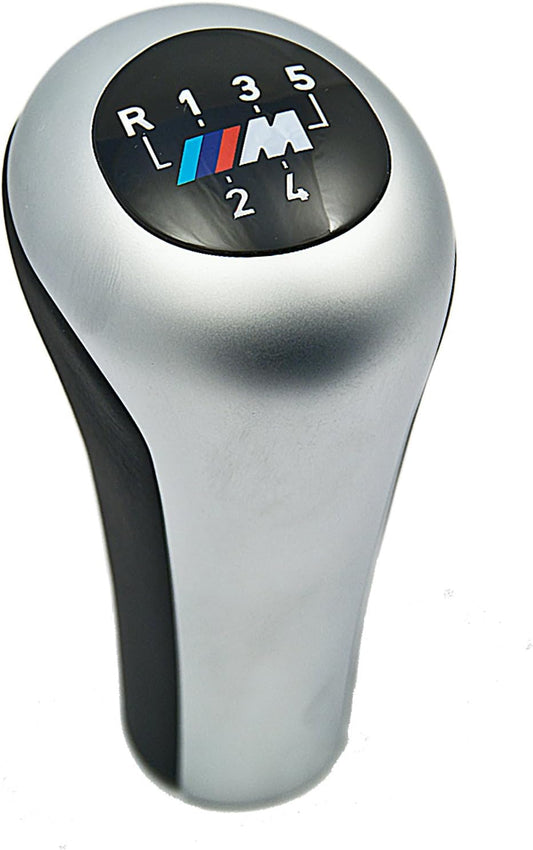
How to choose and keep the motor oil ideal for your BMW
🚗 If you own a BMW, you know how crucial regular maintenance is to ensure the optimal performance of your vehicle. In this post, I will guide you through the choice and maintenance of the engine oil, a vital component for the health of your engine. Let's go there! 💧
Why is motor oil important?
He engine oil It is the soul of your BMW. Without it, the metal pieces would touch each other, causing irreparable damage. In addition, it helps disperse heat, keep the engine clean and guarantee its proper functioning. Motor oil not only lubricates the mobile parts of the engine, but also acts as a cleaning agent, eliminating deposits and waste that could accumulate over time. This is especially important in modern engines, which operate at higher temperatures and with tolerances more tight than the engines of yesteryear.
Motor oil also plays a crucial role in corrosion protection. The additives present in the oil help neutralize the acids that can be formed during combustion, thus protecting the metal motor surfaces. In addition, the oil helps seal the spaces between pistons and cylinders, improving engine efficiency and reducing gas exhaust. In summary, motor oil is a multifunctional component that is essential for the soft and efficient functioning of your BMW.
Oil types: What is the best for your BMW?
- Synthetic: Ideal for extreme climates and severe driving conditions. This type of oil is perfect for those that lead in difficult conditions, such as intense traffic or extreme temperatures, since it offers superior protection and greater thermal stability. In addition, synthetic oil is known for its ability to flow more easily at low temperatures, which facilitates motor start in cold climates. It is also more resistant to oxidation and thermal decomposition, which means that it can last longer between oil changes.
- Semi-synthetic: An intermediate option for balanced performance. It combines the best of both worlds, providing good protection at a more accessible cost than complete synthetic oil. It is a popular option for drivers looking for a balance between price and performance. Semi-synthetic oil offers greater protection than conventional oil, especially under conditions of high load and temperature, which makes it appropriate for a wide range of vehicles and driving styles.
- Conventional: Suitable for older models that do not require high performance improvements. This type of oil is less expensive and can be sufficient for vehicles that are not subject to demanding driving conditions. However, it is important to keep in mind that conventional oil may require more frequent changes due to its lower resistance to oxidation and thermal decomposition.
The choice of oil should be based on your model BMW and its use. Always consult the owner's manual or contact experts in BMW oils. In addition, take into account factors such as the mileage of the vehicle and the usual climatic conditions in your area. For example, if you live in a region with cold winters, a synthetic oil could be more appropriate due to its best performance at low temperatures. It is also important to consider the type of driving you make. If you usually drive in urban traffic with frequent stops, an oil that offers good protection at low temperatures and rapid circulation in the engine can be beneficial.
Tips for adequate maintenance
Regular motor oil maintenance is essential for the proper functioning of your BMW. Here are some practical tips to make sure that your vehicle is always in the best conditions:
- Check oil levels monthly. Even if you don't drive much, oil can degrade over time. Make sure the level is between the brands of minimum and maximum in the measurement rod. A good practice is to check the oil level when the engine is cold and the vehicle is on a flat surface to obtain a precise reading.
- Change the oil according to manufacturer's recommendations. This is usually every 10,000-15,000 km, but can vary according to the type of oil and conditions of use. If you conduct in severe conditions, such as intense traffic or frequent short paths, consider changing it more often. In addition, if you notice that the oil becomes dark and thick before expected, it can be a sign that it needs to be changed.
- USA quality filters To ensure that the oil is kept clean. A good oil filter is essential to catch the impurities and prevent them from circulating through the engine. Changing the oil filter every time you change the oil is a recommended practice to maintain the lubrication system in optimal conditions.
- Pay attention to warning signals. If the oil indicator turns on the board, don't ignore it. You can indicate a low level of oil or a more serious problem. Ignoring these signals can lead to major problems, such as motor overheating or premature wear of its components.
- Always use the recommended type of oil. Not all oils are the same, and using the incorrect can negatively affect motor performance. The use of incorrect oil can result in inappropriate lubrication, which can cause damage to the engine and reduce its efficiency.
In addition to these tips, it is important to be attentive to any change in vehicle behavior. If unusual noise notes or a decrease in performance, it could be a sign that something is not working properly. In such cases, it is better to take the car to a specialized workshop for a complete review.
Frequent questions (FAQ)
How often should I change my BMW oil?
Generally, every 10,000-15,000 km, but this may vary according to the use and type of oil. If you perform many short paths, the engine may not reach its optimal temperature, which can accelerate oil degradation. In such cases, it is advisable to make more frequent oil changes to ensure that the engine is always well protected.
Can I mix different types of oil?
It is not recommended, since it can affect engine performance. Always stay in the same product line. Mixing oils can alter the chemical properties of the lubricant, reducing its effectiveness. If you need to change the oil type, it is better to make a complete change of oil and filter to avoid any incompatibility.
What should I do if the oil level is low?
If you notice that the oil level is below the minimum, add oil of the recommended type as soon as possible. Driving with little oil can cause severe damage to the engine. In addition, if the oil level continues to fall quickly, it could be indicative of a leak or excessive oil consumption that needs to be reviewed by a professional.
Why does my BMW consume more oil than normal?
Excessive oil consumption may be due to several factors, such as wear in motor stamps or a problem with the crankcase ventilation system. If you notice an increase in oil consumption, it is advisable to take the vehicle to a specialized workshop for a review. A proper diagnosis can help identify problems such as oil leaks, piston rings wear or problems in the crankcase ventilation system.
Conclusion
Correct maintenance of engine oil prolong the useful life of your BMW and improves your performance. Invest in quality oils and keep aware of your status to enjoy a safe trip without setbacks. Visit our store for Explore our oil selection of engine available. In addition, remember that adequate maintenance is not only limited to oil change, but also to other aspects of the vehicle such as filters, spark plugs and the exhaust system. Keeping your BMW in optimal conditions will provide you with a pleasant and safe driving experience. Until next! 👋










